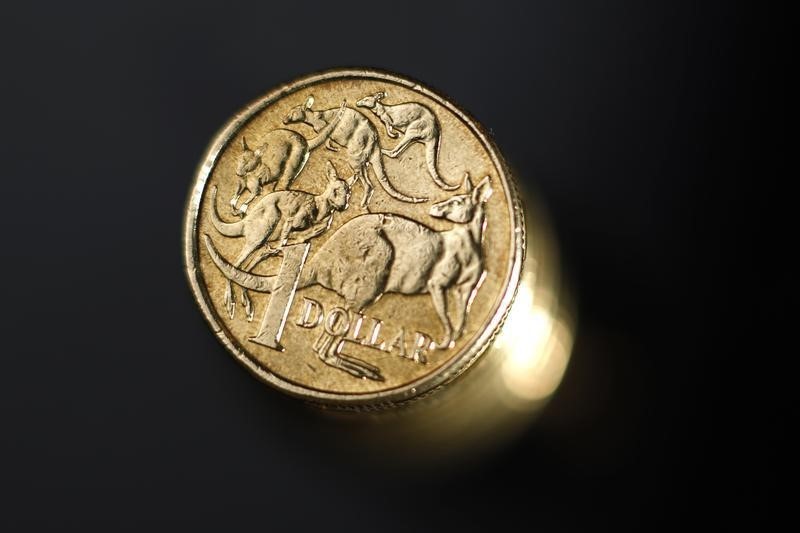By Wayne Cole
SYDNEY, Feb 2 (Reuters) - The Australian dollar was under fire on Friday as speculation about an early policy tightening in Europe contrasted with the scant chance of rate hikes at home and drove up bond yields abroad.
The Aussie AUD=D4 eased 0.3 percent to $0.8013 and away from last week's 2-1/2 year top of $0.8136. That left it down almost 1 percent for the week and threatening important support in the $0.7990/8000 area.
The euro was the main gainer, rising 1 percent overnight to a seven-week high of A$1.5575 EURAUD= amid reports hawks at the European Central Bank were pressing for an end to its asset buying campaign, perhaps by as early as September.
As a result, German five-year bond yields DE5YT=RR climbed above zero for the first time in over two years.
"It is not unusual for AUD/EUR to trade sideways to down when the Eurozone economy accelerates, joining - and driving - a stronger global economy," said Richard Grace, chief currency strategist at CBA.
"The risk is a lower AUD/EUR as the Eurozone's unemployment rate continues to fall faster than Australia's unemployment rate."
While jobs growth has been very strong in Australia, the unemployment rate has been held up by a surge in participation, particularly from women.
The slack in the labour market has kept wages growth near record lows and weighed on inflation. Figures out this week showed underlying inflation had been stuck below the Reserve Bank of Australia's (RBA) 2-3 percent target band for two whole years with little sign of an acceleration ahead.
Investors reacted by pushing out the likely timing of a first hike in interest rates, which is now not fully priced in until February next year 0#YIB: .
That in turn has acted to hold down local bond yields, even as rates elsewhere surged. Australian 10-year paper AU10YT=RR now pays just 3 basis points more than its U.S. counterpart, the smallest premium since 2000.
Australian bond futures likewise eased only a little compared to the heavy losses seen in bunds and Treasuries. The three-year bond contract YTTc1 was off 1 tick at 97.825, while the 10-year contract YTCc1 dipped 2.5 ticks to 97.1700.
The New Zealand dollar fared somewhat better thanks to a run of upbeat domestic data, though again there is scant chance of a domestic rate hike for some time to come.
The kiwi NZD=D4 was off 0.2 percent at $0.7380, but still not far its recent peak at $0.7435.
A survey out Friday showed consumer confidence in New Zealand surged in January, breaking a three-month run of declines, with the mood about current conditions the brightest since 2007. Reserve Bank of New Zealand (RBNZ) holds its first policy meeting of the year next week and is considered certain to keep rates on hold, but also to acknowledge the improving outlook growth at home and abroad.
New Zealand government bond prices 0#NZTSY= slipped in line with Treasuries, lifting yields as much as 5 basis points at the long end of the curve. (Editing by Sam Holmes)
